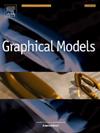大规模组合优化问题的高效扩散求解器
IF 2.2
4区 计算机科学
Q2 COMPUTER SCIENCE, SOFTWARE ENGINEERING
引用次数: 0
摘要
组合优化(CO)问题在不同行业的许多实际应用中非常重要,特别是计算机图形学,其特点是需要巨大的解决方案空间和要求时间敏感的响应。尽管最近神经求解器取得了进步,但它们有限的表现力难以捕捉CO景观的多模态本质。虽然一些研究采用了扩散模型,但这些方法不加选择地从整个np完全解空间中采样解,并且耗时去噪,限制了大规模问题的可扩展性。我们提出DISCO,一个有效的大规模组合优化问题的扩散求解器,在解决质量和推理速度上都很出色。DISCO的效果是双重的:首先,它通过将采样空间约束到由解残数引导的更有意义的域来提高解的质量,同时保留了输出分布的多模态性质。其次,它通过解析可解的方法加速了去噪过程,使解采样具有很少的逆时间步长,并显着减少了推理时间。Jittor是一种基于即时编译和元操作符的高性能学习框架,它进一步增强了这种推断速度的优势。DISCO在大规模旅行推销员问题和具有挑战性的最大独立集基准上提供了强大的性能,推理持续时间比现有的扩散求解器替代品快5.38倍。我们将DISCO应用于设计2D/3D TSP Art,从而能够以更低的路径成本生成流体冲程序列。通过将DISCO的多模态特性结合到分而治之的策略中,它可以进一步推广到解决开箱即用的看不见的规模实例。本文章由计算机程序翻译,如有差异,请以英文原文为准。
DISCO: Efficient Diffusion Solver for large-scale Combinatorial Optimization problems
Combinatorial Optimization (CO) problems are fundamentally important in numerous real-world applications across diverse industries, notably computer graphics, characterized by entailing enormous solution space and demanding time-sensitive response. Despite recent advancements in neural solvers, their limited expressiveness struggles to capture the multi-modal nature of CO landscapes. While some research has adopted diffusion models, these methods sample solutions indiscriminately from the entire NP-complete solution space with time-consuming denoising processes, limiting scalability for large-scale problems. We propose DISCO, an efficient DIffusion Solver for large-scale Combinatorial Optimization problems that excels in both solution quality and inference speed. DISCO’s efficacy is twofold: First, it enhances solution quality by constraining the sampling space to a more meaningful domain guided by solution residues, while preserving the multi-modal properties of the output distributions. Second, it accelerates the denoising process through an analytically solvable approach, enabling solution sampling with very few reverse-time steps and significantly reducing inference time. This inference-speed advantage is further amplified by Jittor, a high-performance learning framework based on just-in-time compiling and meta-operators. DISCO delivers strong performance on large-scale Traveling Salesman Problems and challenging Maximal Independent Set benchmarks, with inference duration up to 5.38 times faster than existing diffusion solver alternatives. We apply DISCO to design 2D/3D TSP Art, enabling the generation of fluid stroke sequences at reduced path costs. By incorporating DISCO’s multi-modal property into a divide-and-conquer strategy, it can further generalize to solve unseen-scale instances out of the box.
求助全文
通过发布文献求助,成功后即可免费获取论文全文。
去求助
来源期刊

Graphical Models
工程技术-计算机:软件工程
CiteScore
3.60
自引率
5.90%
发文量
15
审稿时长
47 days
期刊介绍:
Graphical Models is recognized internationally as a highly rated, top tier journal and is focused on the creation, geometric processing, animation, and visualization of graphical models and on their applications in engineering, science, culture, and entertainment. GMOD provides its readers with thoroughly reviewed and carefully selected papers that disseminate exciting innovations, that teach rigorous theoretical foundations, that propose robust and efficient solutions, or that describe ambitious systems or applications in a variety of topics.
We invite papers in five categories: research (contributions of novel theoretical or practical approaches or solutions), survey (opinionated views of the state-of-the-art and challenges in a specific topic), system (the architecture and implementation details of an innovative architecture for a complete system that supports model/animation design, acquisition, analysis, visualization?), application (description of a novel application of know techniques and evaluation of its impact), or lecture (an elegant and inspiring perspective on previously published results that clarifies them and teaches them in a new way).
GMOD offers its authors an accelerated review, feedback from experts in the field, immediate online publication of accepted papers, no restriction on color and length (when justified by the content) in the online version, and a broad promotion of published papers. A prestigious group of editors selected from among the premier international researchers in their fields oversees the review process.
 求助内容:
求助内容: 应助结果提醒方式:
应助结果提醒方式:


